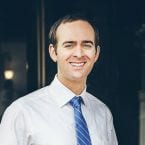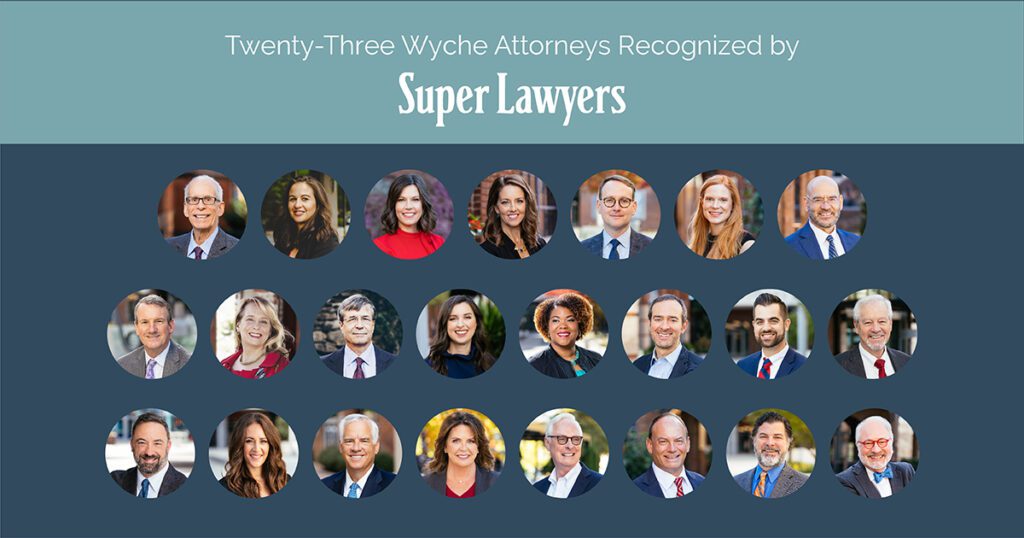The 2021-22 academic year is upon us, and Wyche’s Education Law team is here to help school leaders in South Carolina make this year a great one, despite the many challenges and questions you may be facing. Here is a summary of some of the key changes in laws and regulations that may affect your school.1
1. State Budget Provisos Limit Discretion to Require Masks and Immunizations but SC Supreme Court Okays Mask Mandates for Higher Ed
As the Delta variant spreads and COVID case numbers rise, school leaders are understandably concerned about what safeguards they can require. Can immunizations be required for students? What about for teachers and staff? Can masks be required? If so, where? Schools should consult with their counsel about these questions, and in many cases the answers may turn on whether an institution is public or private, and secondary or post-secondary. Despite the unclear terrain, three provisos passed with the state budget in June are of particular relevance for public schools.
The first proviso, 1.108, provides that no public school district or public school can use state funds “to require that its students and/or employees wear a facemask at any of its education facilities.”
The second, 117.163, provides that “state-supported institutions of higher learning that directly or indirectly receive funds” through the state budget are prohibited from “requiring proof of COVID-19 vaccination for any student as a condition of enrollment.” Relying on this proviso, the Attorney General wrote the College of Charleston in early July, advising that CofC’s new COVID policy should not provide for any “reprimand, punishment, or adverse consequence” for any student who chooses not to be vaccinated. The reference in this proviso to schools that “indirectly” receive state funds suggests that lawmakers may have intended 117.163 to prevent private colleges and universities from requiring COVID vaccines too, but neither the AG nor any court has addressed whether the scope of the proviso extends beyond public higher education.
Finally, the third proviso, 117.190, bars public institutions of higher education, including technical colleges, from using state funds to require that students “have received the COVID-19 vaccination in order be present at the institution’s facilities without being required to wear a facemask.” While the AG interpreted this provision to bar institutions of higher education from imposing a mask mandate, the South Carolina Supreme Court disagreed, issuing a decision on August 17 clearing the way for mask mandates. The Court held that while the terms of proviso 117.190 “clearly prohibit a state-supported institution of higher education from discriminating against unvaccinated students, faculty, and staff by requiring them to wear masks,” the proviso “does not prohibit a universal mask mandate.”
2. South Carolina Liability Shield for COVID Claims
Governor McMaster signed the COVID Liability Safe Harbor Act on April 28, 2021. The Act shields schools and many other entities, including businesses and healthcare providers, from most COVID-related claims if the entities “reasonably adhered to public health guidance applicable at the time” of the conduct giving rise to the claim. The Act defines “public health guidance” to include any applicable published guidance, directive, order, or rule provided by the South Carolina Occupational Safety and Health Administration, the South Carolina Department of Health and Environmental Control, other state governmental entities, or federal guidance if referenced by relevant state entities. While the Act’s protections are currently set to expire in December and there are exclusions for claims of gross negligence and intentional misconduct, schools will have substantial protection from COVID-related claims if they can demonstrate compliance with applicable guidance. For this reason, schools should keep records of their consideration of public health guidance and their efforts to implement that guidance.
3. Open Carry and Guns on Campuses
School leaders in South Carolina may be wondering what the state’s new “open carry” law means for them, but the good news is that the Act does not change the legal landscape for guns in South Carolina schools. Signed on May 17, 2021, the Open Carry with Training Act expands what gun permit holders can do outside of school campuses but it does not amend existing South Carolina statutes banning guns and weapons on campus. The only exception to existing bans allows those with a gun permit to leave the weapon inside an attended or locked motor vehicle if the weapon is secured in a closed glove compartment, console, trunk, or container. Schools may trump even this exception by posting specified signage at entry points onto their campuses. In addition, if your policies do not address firearm possession by students and parents, you may want to consider express language on these points.
4. U.S. Supreme Court Addresses Student Speech Off Campus
On June 23, 2021, the U.S. Supreme Court handed down Mahanoy Area School District v. B.L., ruling 8-1 in favor of a Pennsylvania teenager, Brandi Levy, whose social media post got her banned from her high school’s cheerleading squad. After being rejected from the varsity cheerleading team, Levy posted a profanity-laced complaint to her Snapchat Story about cheerleading and her school (“f*** school f***softball f*** cheer f*** everything”). She uploaded the message via her personal phone while off-campus, and she did not identify the school or target any member of the school with vulgar or abusive language. At least one of her Snapchat “friends” who was on the cheerleading squad took a picture of the message and shared it with other cheerleaders, including a cheerleading coach. The school principal and cheerleading coaches decided that because the posts used profanity in connection with a school extracurricular activity, the posts violated team and school rules. As a result, the school suspended Levy from the J.V. cheerleading team for the upcoming year.
In holding that the school violated Levy’s First Amendment Rights, Justice Breyer’s majority opinion balanced Levy’s free speech rights against the school’s interests in teaching good manners, preventing classroom and extracurricular disruptions, and preserving team morale. Justice Breyer gave special consideration to the responsibility of secondary schools to protect, guide, and discipline students, but ultimately reasoned that Levy spoke outside of the school, on her own time, and under circumstances where the school was not responsible for her. Justice Breyer also noted that the content of Levy’s speech constituted protectable criticism of her community. Thus, although Justice Breyer acknowledged that Levy’s speech may have caused “discomfort and unpleasantness,” the disruption in the school community had not been sufficient to justify punishment.
The implications of the Mahanoy decision for institutions of higher education remain unclear, but arguably its principles apply with even more force to colleges and universities, which do not stand in loco parentis in the same way as secondary schools and generally have less ability to regulate their students’ speech. The main takeaway from Mahanoy thus applies to public schools at any level – proceed with caution when disciplining off-campus speech.
5. Department of Education Makes Clear Title IX Protections Extend to LGBT Persons
On June 16, 2021, the Department of Education issued a notice regarding its enforcement of Title IX, which prohibits recipients of federal funds from discriminating on the basis of gender. The notice, which may be found here, announces that the Department interprets Title IX’s protections to bar discrimination on the basis of sexual orientation and gender identity.
The Department relied on the Supreme Court’s 2020 decision in Bostock v. Clayton County. In Bostock, the Supreme Court reasoned that discrimination based on sexual orientation or gender identity inherently involves treating individuals differently because of their sex and thus held that such discrimination violates Title VII’s prohibition of discrimination “because of sex.” The Department pointed to the textual and purposive similarities of Titles VII and IX, as well as federal courts’ recent reliance on Bostock for Title IX interpretation, and concluded that Title IX prohibits LGBT discrimination.
The Department’s notice resolves any remaining doubts about whether Title IX protections extend to LGBT persons, and schools should apply their Title IX policies accordingly.
6. New Name, Image, and Likeness Law for Student-Athletes
On July 1, 2021, the NCAA issued guidance that allows student-athletes the opportunity to benefit monetarily from licensing their name, image, and likeness (“NIL”). Specifically, the NCAA guidance provides that student-athletes may participate in NIL activities without violating NCAA rules, if the activities are consistent with any laws of the state where the student’s school is located. This means that student-athletes can profit from their celebrity without sacrificing their eligibility so long as they are complying with applicable state laws.
South Carolina legislators recently passed the Intercollegiate Athletes’ Compensation for Name, Image or Likeness Act (“SC NIL Law”), and amended certain other legislation to permit collegiate athletes to receive compensation for their name, image, or likeness. While the law was originally supposed to go into effect on July 1, 2022, South Carolina Attorney General Alan Wilson certified that the NCAA’s action to allow student-athletes to profit off their name, image, and likeness conforms to South Carolina’s new SC NIL Law, and this certification caused the law to go into effect as of July 1, 2021.
As stated in the NCAA’s guidance, NCAA member-schools and athletes in South Carolina must follow the SC NIL Law.
7. Department of Labor Withdraws Independent Contractor Rule
On May 5, 2021, the Department of Labor withdrew its January 7, 2021 Independent Contractor Rule, which would have made it easier to achieve independent contractor status. That Rule modified application of the Fair Labor Standards Act’s economic realities test, which is used to distinguish independent contractors from employees. The January 7 Independent Contractor Rule focused on two “core factors” – the nature and degree of control over the work and the worker’s opportunity for profit or loss based on initiative and/or investment – to determine whether a worker is an employee or an independent contractor. In withdrawing the January 7, 2021 Rule, the Department explained that no court had privileged these two particular factors above others and expressed concern that the new Rule did not fully align with either the Fair Labor Standards Act’s text and purpose or case law applying the economic realities test.
With the withdrawal of this rule, we anticipate the Department will return to its prior approach to this issue, which greatly favors the finding of employee status.
The bottom line for schools is that those schools that use independent contractors should review those relationships, including the contracts and other documents implementing those relationships. Misclassification of employees as contractors can be an expensive mistake.
1This update is not legal advice. Please consult an attorney for guidance on your particular situation.






